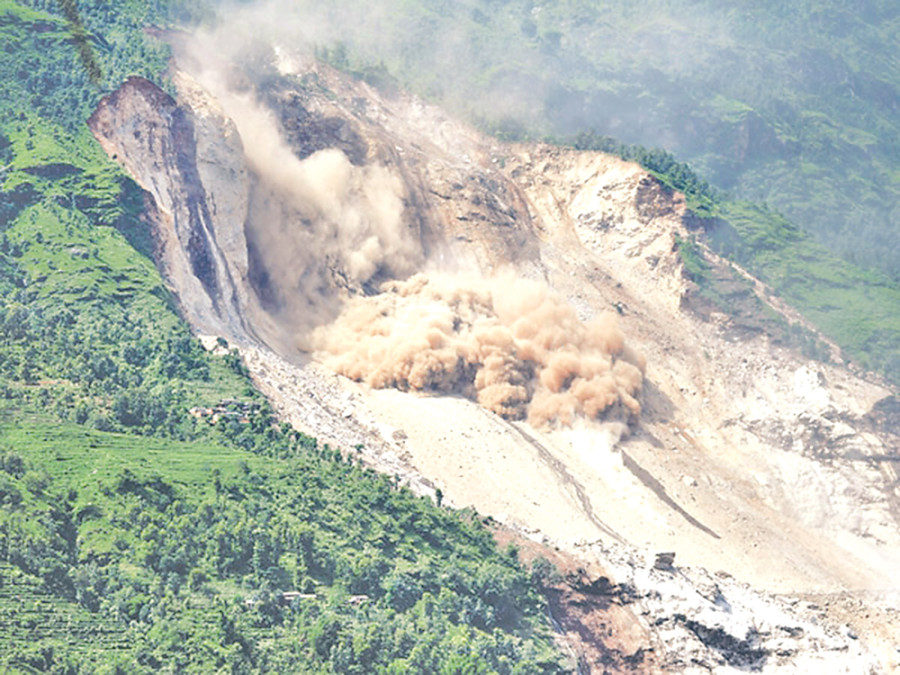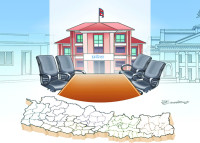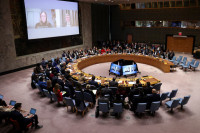Opinion
Environment unfriendly
There is a disturbing disconnect between Nepal’s success in nature conservation and an indifferent political class
Navin Singh Khadka
Just when Nepal this week was being lauded for a significant rise in its tiger population, little did the international community know that the government in Kathmandu was embroiled in an environment-related controversy. Prime Minister KP Sharma Oli’s direct intervention to ease an environmental regulation came a few days before the country’s contribution to the increased population of the endangered species was made public.
According to the World Wildlife Fund and the Global Tiger Forum, the number of tigers in Nepal increased by more than 60 percent since 2009 and the country joined India, Russia and Bhutan in the success story. The figures were made public a day before a key tiger conference kicked off in New Delhi this week. The ministerial meeting of 13 tiger range countries in Asia was a stage where Nepal could be proud of itself.
Back home, however, the developments do not bode well at all for that image. Media reports have quoted environment ministry officials saying that the Environment Impact Assessment (EIA)—a mandatory process for big projects to undergo before they kick off—is being relaxed.
Dangerous development
There are also reports that sand, boulder and pebble mining and crushing industries now need not go through the assessment and can just get away with the Initial Environment Examination (IEE), a less comprehensive environmental process for smaller projects to complete before they are launched.
The head of the country’s administration getting concerned that top projects are facing hindrances because construction materials like sand and boulders are short in supply is justified. That he is told the EIA was the root cause of the delay is also understandable. But to render the regulation toothless just because there were ‘complaints’ against it from certain quarters is beyond comprehension.
Who are those quarters? Do they only represent the construction industry? What do the complainers know about environmental protection and its importance to society? Who defines what is in the larger interest here?
We hear from the prime minister that the country has embarked on a development journey. We will find out sooner or later whether it actually has. But in the name of progress, if we start undermining the natural resources because of which we survive, it will mean dangerous development.
To see that for themselves, these politicians and policy-makers need to go to the southern outskirts of the Kathmandu Valley where they will see what the rock and soil mining and stone crushing industries have done to people’s lives.
The local population increasingly suffers from respiratory diseases and many peoples’ lives have been shortened due to acute air pollution. If that is not enough, the politicians should go to the foothills of the Chure range and see what rampant collection of sand and boulders from river beds has done.
While they relax in their luxurious bungalows in the Capital, villagers are taken by surprise as rivers abruptly change their course and enter into their settlements because the sand and the pebble that regulated their flow are simply gone. Those in power conveniently issue orders from the centre and get bulldozers to carve mountain sides in their constituencies no matter how tough the terrain is.
Transport access is no doubt vital but the rampant road building frenzy has made mountain slopes across the country more dangerous, more so that they are now frequently rattled by quakes and aftershocks.
No rocket science
Air, water and land provide us the natural services we cannot do without. If we take care of them, they will take care of us. That is why we need to protect the environment. This is no rocket science. And for environmental protection, you have provisions like the IEE or the EIA. This is standard international practice.
Before giving permission to hydro power projects, for instance, the EIA requires information on how much land would be inundated and how many people would be displaced by reservoirs or the diversion of water. The assessment also finds out how much of deforestation will happen.
The information is not meant to scuttle the project. Of course, if the impact is found to be massive, authorities can reject the project citing that environmental costs far outweigh the gains from the project.
But more often, the assessments help to minimise impacts through appropriate measures. And the idea is to strike the right balance between development and environment. We can have roads, power plants, bridges and other infrastructures while protecting our air, water and land. That is where the role of EIA and IEE becomes instrumental.
Bureaucracy no doubt makes the process complicated at times and many project developers have indeed suffered because of it. They have a point when they say that the country is crippled with severe power crisis and yet the environmental provisions are allowed to discourage or delay hydroelectricity projects. The EIA and IEE can also be handy tools for corrupt officials and politicians. But that does not mean that you uproot the safeguards you created for your own well-being.
If it is those with authority who are creating problems, they need to be corrected. If there are issues with the laws themselves, they need to be amended as well.
But the question here is: Have politicians ever bothered to understand what the environmental laws are and why they matter? Do they realise what impacts the collapse of ecosystems could have on communities?
If they did, the environment ministry would not have been their least preferred berth and they would not have taken environmental services for granted.
Donor-driven
This lack of knowledge among the political class sits astoundingly awkwardly with Nepal’s track record at nature conservation. With 20 national parks, wildlife reserves and conservation areas, nearly 24 percent of the country’s total land mass is protected.
Plans and programmes for conservation of plants and animals have worked fantastically, thanks in part to donors and international agencies. Of course, some national agencies have played a key role too. But then, if the success was mainly because of national actors, why is environmental protection not high on the country’s agenda?
The deep disconnect between donor-driven conservation and environmentally indifferent political class can perhaps explain the gap.
Khadka is a BBC journalist based in London




 7.73°C Kathmandu
7.73°C Kathmandu












